Göbel Lacorde Statement Cables
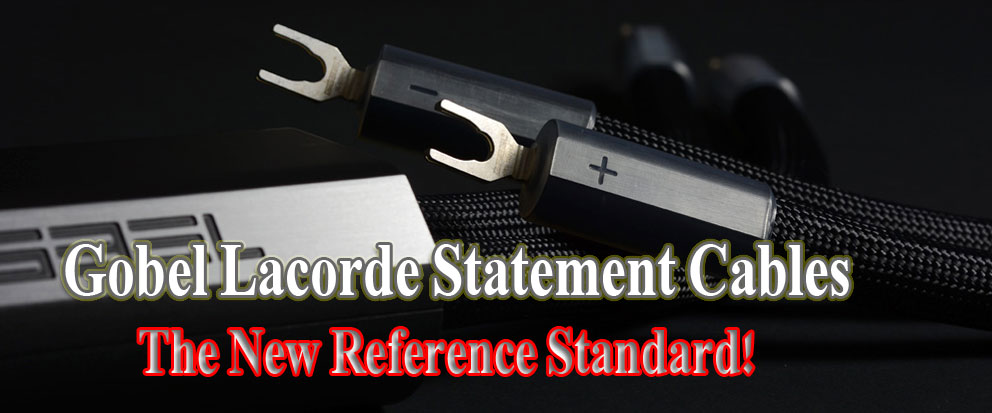

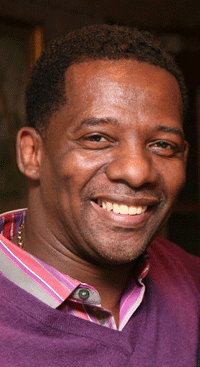
An embarrassment of riches. That’s how I feel about the latest series of cables that are now a fixture in my reference system. I’m a bit embarrassed to talk about them for a few reasons:1) they’re incredibly expensive, 2) I didn’t particularly want to audition them in first place, and 3) they actually sound better than I would have EVER expected a cable could.
Up until the arrival of these mighty beasts, I had been using Klee Acoustics Grand Illusion cables as a reference for nearly five years. The Grand Illusions produced such a wonderful symbiotic relationship with my system that I more or less lost the desire to audition anything else cable-wise. I learned very early on that synergy can result in a sound that is greater than the sum of its parts. Musical synergy is akin to catching lightening by the tail.
Last winter I corresponded with Oliver Göbel, president of Göbel High End about getting a review sample for another writer. He then expressed a personal interest in me reviewing his product as well. My luke-warm response was that I might be willing to do so, but that I was very happy with what I was using. Rather short-sighted (not to say, stupid) of me!
True, I did not want to find myself laboring again over another super-expensive but ultimately disappointing (non-synergistic?) cable once again. I hate to admit, but mediocre sounding cables had been arriving quite regularly over the years. Since the arrival of the Klee cables I was able to concentrate on other things – like music. So, though hesitant, I thought maybe it was about time to risk it once again.

I went to the Göbel website to get a refresher on their bona fides and their product lines. I was surprised to find the company has been around for over a decade yet debuted their top-of-the-line Epoque Reference loudspeaker ($250,000 photo above) at the 2012 Munich High End show. After a short listen I knew this wasn’t just another big, shiny, expensive loudspeaker. This and all Göbel loudspeakers use a patented, Carbon Excellence Bending Wave flat panel driver. In my 2012 High End report on their room I wrote: What stood out beyond the shadow of doubt was the organic and natural reproduction of instruments.
A Jack of All Trades and a Master of None?
I also remember this young, good-looking gentleman showing me his cables. His name badge read Oliver Göbel. I felt the usual hesitation and skepticism I always do with manufacturers who have multiple irons in the audiophile fire. Just because you build expensive speakers with proprietary drivers, what makes you think you’re going to be good at cable design? Not that it can’t be done but there are damned few designers in my experience talented enough to pull it off. Names like Goldmund, Audio Note and Audio Consulting come to mind: companies that encompass entire systems rather than discrete components.
My Klee cables retailed for $9,000 and I felt spending a penny more would be impossible to justify. With the Göbel lineup I was in for a bit of a shock. The asking price of the Göbel Lacorde Statements is $25,000 for an eight foot pair (bi-wiring doubles the price). Their AC powercords are $9,100 each (I needed five),and their interconnect and digital XLR cables are $5,600 and $2,800 respectively. Despite this, I was confident my old and reliable Klee Grand Illusion cables would hold up well against the much more expensive Göbel products.

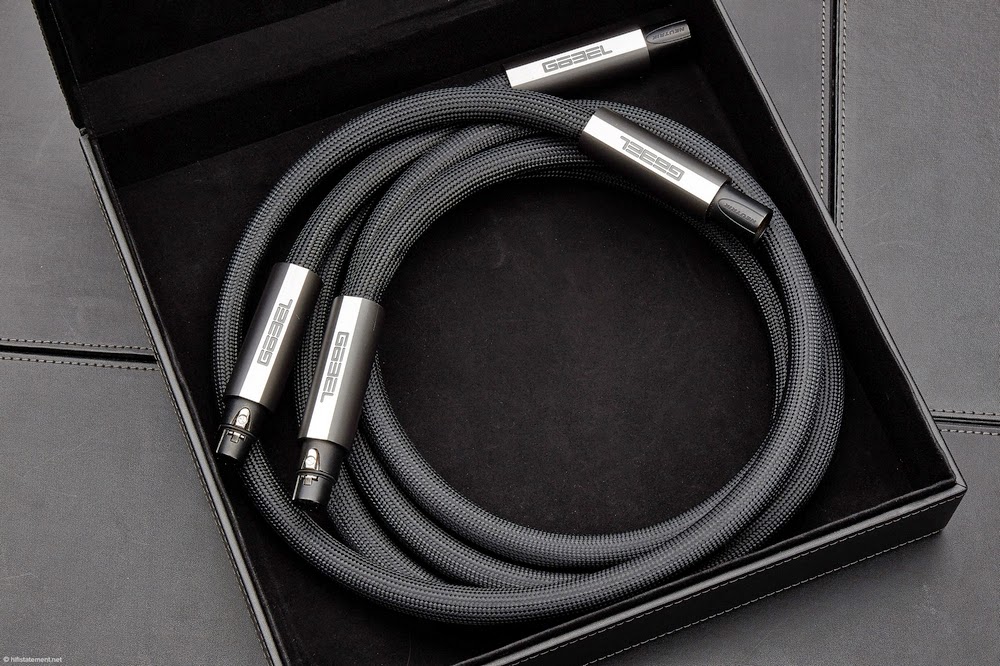
Some weeks later an international FedEx package arrived from Germany. It contained two pairs of Göbel speaker cables, one pair of XLR interconnects and one digital cable. (about 8 weeks later, five Göbel Lacorde power cords showed up in similar leather-bound cases, hence the delayed publication.) Substantial, both in weight and build quality, I was impressed just holding these python-thick cables in my hands. They are surprisingly flexible for their size and girth and yet sport beautifully made (in-house) milled connectors that adorn each end. The leather-bound boxes the cables arrived in bear the Göbel family Coat of Arms insignia that offers a certain regal character and history. Needless to say, the overall beauty, weight and Coat of Arms insignia on the box – and not to mention the excellent packaging – provided enough suspense and intrigue to get this old reviewer all excited before ever installing them into my system. If aesthetic appeal and the physical look/feel impresses you as much as sonic performance does, then this is easily the cable to own if you just want to marvel at its exterior. If art truly imitates life, then the adage that beauty is not only skin deep would certainly apply here.
For Göbel states that a special alloy of copper, silver and a proprietary metal are used in their manufacture. This alloy is the heart of the cable design. The conductors themselves are sealed in a Teflon-based coating, while rubber and neoprene serve as the chosen damping material. The special geometry used in these cables is adapted from Göbel’s discoveries in designing their flat panel drivers. Again, due to the flexibility of all Göbel Lacorde Statement cables, hook up was essentially no problem at all and I was ready to go in short order.
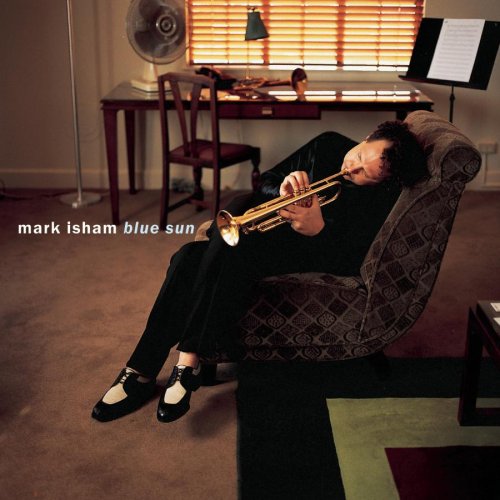 My first listen was Lazy Afternoon from trumpeter Mark Isham’s “Blue Sun” CD. This longtime favorite is Mark’s ode to Miles Davis and is his first straight-ahead jazz project. This CD contains fast-paced as well as slowed and insightful melancholy tunes. Each of the nine tracks are wonderful in their own right, while the sound quality is always excellent. One of the things I like most about “Blue Sun” is its exceptional openness and bass energy. With the Göbel Lacorde Statement cables, I felt something I’d never experienced in the 20 years I’ve owned and listened to this standard 16/44 CD: the bass energy went from my loudspeakers to the surrounding walls and into my listening seat.
My first listen was Lazy Afternoon from trumpeter Mark Isham’s “Blue Sun” CD. This longtime favorite is Mark’s ode to Miles Davis and is his first straight-ahead jazz project. This CD contains fast-paced as well as slowed and insightful melancholy tunes. Each of the nine tracks are wonderful in their own right, while the sound quality is always excellent. One of the things I like most about “Blue Sun” is its exceptional openness and bass energy. With the Göbel Lacorde Statement cables, I felt something I’d never experienced in the 20 years I’ve owned and listened to this standard 16/44 CD: the bass energy went from my loudspeakers to the surrounding walls and into my listening seat.
I thought that maybe a heavy dump truck had gone down the street. Or that my son, in the room located directly below, had turned up some heavy, synthesized rap song. Nope. I smiled. It was the cables. Thrilling. In essence, the whole room shook in a way that never seemed exaggerated or overdone mind you. Instead of making me want to reach for the remote to turn down the volume, I instead hit the repeat button and turned the volume up!
Hearing a more solid, quick and taut bass is expected (if the cables are a successful design). But the Göbels allowed me to hear a level of bass I had never known existed. And it wasn’t just about weight and volume, but more about an enhanced low-end frequency, resolution of bass harmonics and overtones combined with incredible clarity and nimbleness (the desire to want to turn the volume up happened consistently throughout this evaluation period and beyond).
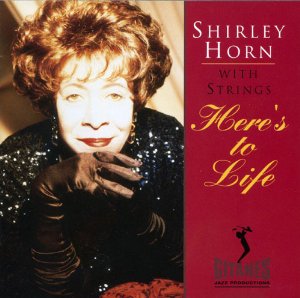 “Here’s to Life” is a legendary 1992 recording by one of my favorite jazz artists, Ms. Shirley Horn. On the thoughtful and mellow Come a little Closer/Wild is the Wind, I felt, for the very first time, as though the my listening room floor opened up with energy that started from the lowest bass octaves my room has ever produced. It was as if I was hearing the music from bottom up rather than the top down, if that makes any sense. Here’s to Life features an 32-piece orchestra led by Johnny Mandel. Hailed as a masterpiece in many jazz circles, I never heard its upper frequencies this translucent, warm and gentle. The horn section maintained their rightful place within the soundstage, but their instrumental weight, texture and harmonics seemed nailed to the floorboards.
“Here’s to Life” is a legendary 1992 recording by one of my favorite jazz artists, Ms. Shirley Horn. On the thoughtful and mellow Come a little Closer/Wild is the Wind, I felt, for the very first time, as though the my listening room floor opened up with energy that started from the lowest bass octaves my room has ever produced. It was as if I was hearing the music from bottom up rather than the top down, if that makes any sense. Here’s to Life features an 32-piece orchestra led by Johnny Mandel. Hailed as a masterpiece in many jazz circles, I never heard its upper frequencies this translucent, warm and gentle. The horn section maintained their rightful place within the soundstage, but their instrumental weight, texture and harmonics seemed nailed to the floorboards.
The Göbel Lacorde Statement cables surprisingly removed distortions that I never knew existed. Instruments glided on a effortless plume of air that breathed new life into many old R&B songs. Great artists like Earth, Wind and Fire, Donny Hathaway, Stevie Wonder, Marvin Gaye and Luther Vandross sounded better than I ever heard. Song after song, track after track, the Göbel Lacorde Statement cables accentuated the good while removing a lot of the bad: noise and hardness.
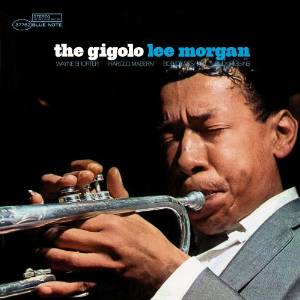 The infamous ’60’s Impulse, Prestige and Bluenote label jazz recordings sound surprisingly more contemporary. Finally, the sound has more dimension, instruments have more harmonic overtones and the scrim (noise that rides on the upper frequencies) – that has served as a time-stamp to this great era of music – has finally lessened. Lee Morgan’s 1965 gem of a recording The Gigolo (Bluenote) serves as the perfect example. Lee’s trumpet play along with Wayne Shorter searing saxophone solos never sounded this fantastic and refreshing.
The infamous ’60’s Impulse, Prestige and Bluenote label jazz recordings sound surprisingly more contemporary. Finally, the sound has more dimension, instruments have more harmonic overtones and the scrim (noise that rides on the upper frequencies) – that has served as a time-stamp to this great era of music – has finally lessened. Lee Morgan’s 1965 gem of a recording The Gigolo (Bluenote) serves as the perfect example. Lee’s trumpet play along with Wayne Shorter searing saxophone solos never sounded this fantastic and refreshing.
Doubtful, I invited some of closest friends over for a listen
One of those friends is Stereo Times long-time contributor Bill Wells. Because Bill happens to reside out in Minneapolis, MN, he doesn’t get the chance to visit as often as others. When visiting the NYC area, Bill and I enjoy a long-awaited music session considering he too is an avid jazz aficionado. Upon the installation of the Göbel Lacorde Statement cables, I was anxious to find out what his sonic impressions would be knowing he planned a visit right after they settled in. Here are Bill’s comments…
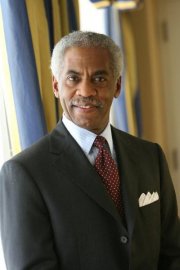 Having been to Clement’s home previously, including numerous times to experience for myself either component changes or some of his more subtle tweaks, I found my most recent visit a very pleasant surprise and certainly more than I had anticipated.
Having been to Clement’s home previously, including numerous times to experience for myself either component changes or some of his more subtle tweaks, I found my most recent visit a very pleasant surprise and certainly more than I had anticipated.
The reason I say this is due to the fact that not much more than barely four months prior I had been over to Clement’s place and experienced a very significant change in the sound of his system from one of my previous visit. This time, Clement was insistent and strongly encouraged me to pay him another visit and as soon as possible. From what he told me – the only real change from my most recent previous visit was inclusion of the Göbel cables along with some much needed break-in time.
OK, so what was my reaction?
Actually, given my familiarity with the overall sound of CP’s system, it was more like being startled and in a most positive way. The most immediate thing that I observed was a noticeable increase in the sense of musical coherence. There was also an increase in power and dynamics along with musical nuances emerging with a high degrees of clarity. This was top to bottom, where the recreation of recorded sound presented itself as a unified whole. This allowed me to simply relax and experience the full expression of how the musicians intended their performance to sound.
Often in the audiophile world we talk about how impressive the sound is in our respective high-end audio systems and how we are all searching for creating that so-called illusion of the real thing. The big difference I was now hearing at Clement’s place was how his system so totally immersed me in the sound such that I felt more as though I was a part of the live experience vs. simply sitting back and listening or observing it. This is a somewhat difficult thing to describe and for one of those rare times in my experience in high-end audio over many, many years – things such as imaging, sound staging and/or whatever other ways we typically try to describe the sound when listening seemed to simply become far less important. In fact – as I have often said, when I attend live concerts, primarily jazz, I very seldom, or rarely, observe any of the typical sonic attributes that audiophiles use to describe how the sound is in their homes. In a live concert environment, my most immediate reaction is the connection I feel to the music and this is what happened to me recently at Clements.
Again – the only thing that was different, for this particular listening session, was the inclusion of a full set of the Göbel cables. By the way – these babies are massive in both girth and weight. But oh me oh my – they really do their job and in a totally superb manner. – Bill Wells
Afterthought
Surprisingly, at the end of about 400 hours of burn-in, I was able to play my system via the Göbel Lacorde Statement cables at increased volume levels way beyond what might be considered normal (or sane) before the sound started to distort. And even then, I have a sneaky suspicion that it was my ears and smallish (17′ x 21′) listening room, rather than the cables, that started to cave in.
I also noticed the frequency extremes to which the Göbels reach. They are brighter without exhibiting any hardness whatsoever and at the same time go substantially lower than any cable I have had the pleasure of experiencing in my listening space. In side by side comparisons, the Klee sounded less extended in the bass and lacked sparkle and brilliance in the highest frequencies. The Klee Acoustics, which I always characterized as the most natural sounding of cables, for the first time sounded duller and less than pristine. Progress waits for no one I guess.
In Conclusion
The only downside I can discern thus far – apart from the unlikely chance they do not create a near-perfect synergy in your system – is their exorbitant asking price. The high-end audio hobby is a tricky one indeed. A high sticker price doesn’t guarantee a better sounding product. Unfortunately however, the best products I know of and have heard over the past twenty years do usually come with a hefty asking price. The Göbel Lacorde Statement are quite expensive but are also the best looking and sounding cables I’ve heard. Period.
The Göbel Lacorde Statement has enhanced my appreciation of what is actually possible in the ‘here and now’ with regard to both cable engineering and musical appreciation. Like the Sunny Majestic loudspeaker, Laufer Teknik Memory player and Behold electronics before them, these cables have now become an integral part of my system, my work and my musical muse. In the final analysis, the Göbel Lacorde Statement has not only performed beyond what I believed imaginable, they’ve reintroduced me to hundreds of classic songs. When it’s ALWAYS about the music first, that’s the highest compliment I can offer any product.


clement perry
Specifications:
Lacorde Statement Speaker (per 3 meter length)
Price in Euro 20,000
Lacorde Statement Power (per 2 meters)
Price in Euro 7,500
Lacorde Statement XLR per one meter
Price in Euro 5,000
Address:
Goebel High End
Schabweg 4a
82239 Alling
+49 8141 2255887
Email: info@goebel-highend.de
Website: www.goebel-highend.de
Stereo Times Masthead
Publisher/Founder
Clement Perry
Editor
Dave Thomas
Senior Editors
Frank Alles, Mike Girardi, Russell Lichter, Terry London, Moreno Mitchell, Paul Szabady, Bill Wells, Mike Wright, and Stephen Yan,
Current Contributors
David Abramson, Tim Barrall, Dave Allison, Ron Cook, Lewis Dardick, John Hoffman, Dan Secula, Don Shaulis, Greg Simmons, Eric Teh, Greg Voth, Richard Willie, Ed Van Winkle, Rob Dockery, Richard Doran, and Daveed Turek
Site Management Clement Perry
Ad Designer: Martin Perry


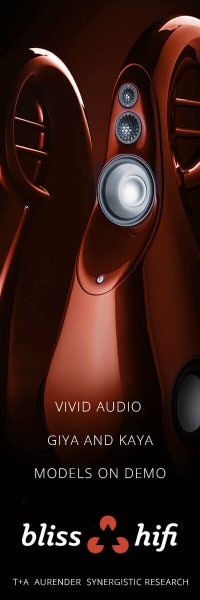
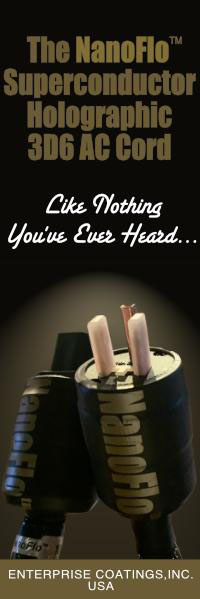
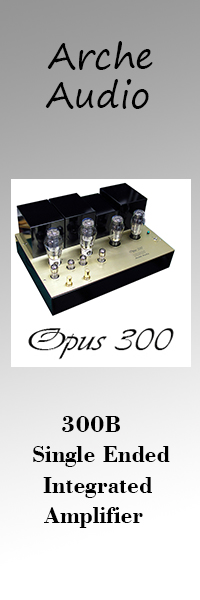
Be the first to comment on: Göbel Lacorde Statement Cables